Open on Evenings & Holidays! Extended And Flexible Hours!
* DNA Testing for Immigration
* Paternity Testing
* Deceased Paternity
* Forensic Testing & Much More!
Open on Evenings & Holidays! Extended And Flexible Hours!
* DNA Testing for Immigration
* Paternity Testing
* Deceased Paternity
* Forensic Testing & Much More!
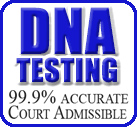
AB DNA Testing Services
Phone: 718-701-0292
We offer New York’s BEST AND MOST AFFORDABLE DNA TESTING with a full range of services to verify family relationships.
We specialize in the following types of DNA tests:
• Paternity • Maternity • Grand-parenting • Sibling Relationship • Biological Relationship Studies • Twin Studies • Deceased Paternity • Forensic Testing • Child Identity Testing • Family Tree and Genealogy Testing
* EVEN LOWER PRICE THAN HOME DNA KITS.
* NO HIDDEN COSTS – Collection kits, photography, and fingerprinting all included.
* 99.9% (OR GREATER) ACCURACY.
* FINAL RESULTS ARE PRESENTED IN A NOTARIZED DOCUMENT IN A CLEAR AND CONCISE FORM.
* ALL RESULTS ARE COURT ADMISSIBLE.
* OVER 15 YEARS EXPERIENCE.
* NO REFERRALS NECESSARY!
* FAST AND PAINLESS SAMPLE COLLECTIONS, USING BUCCAL (Mouth) SWABS.
* SPANISH, PORTUGUESE, FRENCH AND CREOLE SPOKEN.
* PLEASE SEE TRANSLATIONS OF OUR SERVICES IN: SPANISH, BENGALI, URDU, CHINESE AND NEPALESE!
Located In Woodside Queens, easily reachable from all boroughs (Queens, Manhattan, Brooklyn, Bronx and Staten Island), Westchester, Nassau and Suffolk.
We can also schedule DNA tests at our network of collection sites throughout New York city.
Call us. We have found that in many cases, our personalized service can overturn your denial. We will call the passport office or immigration dept. for you and plead your case over phone verbally.
90% of time they will revoke your denial, as long as you get the required information to them quickly.
AB DNA TESTING SERVICES
AB DNA Testing Services © |
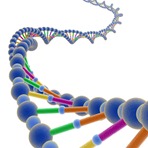 |
718-701-0292 We are open on evenings & holidays! |
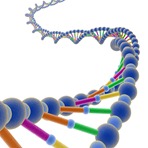 |
Legal Paternity Test: $349
NYS compliant testing only. NO HIDDEN COSTS OR EXTRA FEES.
We do not provide prenatal DNA testing in-house. If you need prenatal testing, we can refer you to a provider we’ve worked with previously:
Prenatal DNA Testing NYC.
AB DNA Testing Services offers a broad range of DNA testing options using certified, accredited laboratories and verified collection procedures.
Where do you get the best paternity DNA testing? This type of DNA testing is highly accurate at detecting the biological father of a child. It can include using cheek swabs and blood tests to confirm the paternity of a child or even an older adult. For legal purposes, you must get a DNA paternity test in a proper medical setting. Moreover, prenatal paternity DNA testing can reveal the father of the unborn child during pregnancy

It is vital to determine and detect the biological paternal lineage of a child or an adult. The paternity test involves using an individual DNA profile for each of the subjects (child/grown-up person and the alleged biological father). The testing compares these DNA profiles, detecting a genetic match to “not exclude” the alleged biological father. If the non-gestational (alleged) parent’s genes match with the DNA of the child, he is the biological father. Otherwise, a contrary test result “excludes” them as the potential biological parent.
Paternity DNA testing can involve using saliva or blood as DNA samples from a non-gestational parent and the child. The test results are rarely below 100% accuracy.
Usually, standard laboratories take no more than 2-5 days before providing test results. Bear in mind that this time frame begins when they receive your DNA samples. Several other methods are also available that include expedited methods. It is possible to reduce the time of the test results depending on the urgency (for example, when you may need to add a name on a birth certificate). However, certain test results can take longer (weeks) to arrive, including CVS or amniocentesis.
Finding the right results is of paramount importance in paternity DNA testing. Therefore, a reliable and knowledgeable DNA testing firm will suggest that you involve the biological mother of the subject, i.e., a child or grown-up person, in the test as well. Hence, with the DNA samples of the individuals, the accuracy of the test results increases. Conversely, if a biological mother is not present, the option of motherless paternity DNA testing remains available. However, keep in mind that this could affect the statistical percentage of the test results.
In case the non-gestational or alleged biological father is not present for testing, you can establish paternity through an indirect relation such as Grandparent or Sibling DNA testing.
The positive test results for paternity DNA testing can be as accurate as 99.99%. Thus, it identifies and determines the biological father of a child/grown-up man. Keep in mind that the ethnic factor remains involved along with the presence of the biological mother for higher accuracy. On the other hand, a negative test result depicts a 0% chance of a man being the biological father of the subject.
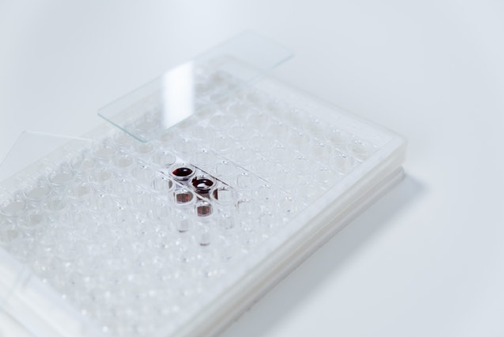
They are essential, especially when the court instructs them for presentation in a child support or custody case. Some benefits of paternity DNA testing include:
Paternity tests can occur both pre and post-natal. In the case of a post-natal paternity DNA test, experts may take cheek swabs and blood samples from the non-gestational or alleged biological father. If there is a need for prenatal paternity testing, there are multiple ways to take DNA samples during pregnancy:
Because it is an invasive paternity testing method, ensuring and safeguarding the health of an unborn fetus is important. It occurs under certain legal and other conditions and takes place over 15 to 20 weeks of pregnancy. Using a tube, experts extract amniotic fluid from the pregnant female and the non-gestational or alleged father of the fetus to check for a genetic match.
Nearly 100% accurate, NIPP involves taking saliva samples from the alleged biological father and the blood sample from the pregnant female (fetal DNA analysis).
This method determines parentage and fetus health at the same time. It involves taking DNA samples from the pregnant female’s abdomen (placental tissue) or cervix. Similarly, it also involves checking against the cell DNA sample of the non-gestational or alleged biological father.
Are you searching for the right laboratory and DNA experts to conduct a long-awaited paternity DNA test for you, your child, or someone you know? At AB DNA Testing Services ©, we offer compassion to our clients and help them throughout the process.
Despite testing challenges such as the unavailability of the mother, father, or both, we maintain high accuracy in all of our DNA tests. Call us to schedule a meeting, especially if you have legal reasons for establishing proof of paternity.
AB DNA Testing Services ©
63-11 Queens Boulevard
Woodside NY 11377
Phone: 718-701-0292
Fax: 718-458-9700
References & Links:
https://www.sciencedirect.com/topics/medicine-and-dentistry/paternity-test
https://www.theatlantic.com/family/archive/2019/06/dna-tests-and-end-paternity-secrets/592072/
https://my.clevelandclinic.org/health/diagnostics/10119-dna-paternity-test
https://www.verywellfamily.com/about-paternity-tests-1270746
What is a paternity test? If you have plans to get paternity testing in New York but have no idea what it is, you are at the right place. Paternity confirmation is a controversial and sensitive issue. In some cases, it becomes necessary to take the test. Many people who want to keep results confidential think that a home paternity test is convenient. However, that is not true. A reliable accredited lab such as AB DNA Testing will keep your results secret.
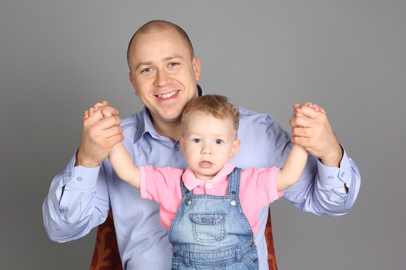
While taking a Paternity test from a reputed laboratory, you do not have to feel hesitant. Some immigration applications also require paternity tests. The immigration officer may ask you for a paternity test if they think that the documentation isn’t enough proof. Therefore, you should have basic knowledge about the paternity test. Below, you will find some information about paternity testing that you should know:
A DNA test can be of different types. One of these is the paternity test. The DNA paternity test will help determine the father of a child. This test holds the great significance of this test to resolve family issues and legal matters. During paternity testing, the lab will collect samples from the alleged father and son. If the DNA samples of both individuals match, they are in a relationship.
In some cases, a person, a child, or both entities take a paternity test. The results of the test can be shocking and may disrupt the family. But, in most cases, the results clear up misunderstandings and misconceptions. Here are some conditions in which you can take paternity tests:
Paternal tests can help identify the biological father of the child. Sometimes, the father of the child is unclear due to unfortunate situations, second marriage, extramarital affairs, and pregnancy before marriage. This test can also help identify the culprit in rape cases. If it’s uncertain, as to who a child’s parents are, it can raise problems related to the rights and custody of the child. To avoid any confusion, you can undergo a paternity test to identify the father of the child. In all these cases, parents require documentation proving that they are the biological parents of the child.
Besides legal and disputes, government agencies also require proof of paternity to offer security and benefits. If a dispute between parents is affecting the child, Social Security Company will require a paternity test. These tests resolve family disputes. Many health insurance companies will ask you for a paternity test if you have any doubts or suspicions.
When you apply for immigration, you need a birth certificate and other documents to prove your relationship with the sponsor. You need to have a biological relationship with an individual living in the U.S. to qualify for family immigration. That’s when you need to take a DNA test as this is the only proof of relation after birth certificate. A paternity test is essential to prove identity during the immigration process. Sometimes, you have the relevant documents, but the authority finds your application suspicious. In that case, they will ask you to consult an accredited testing laboratory such as AB DNA testing services. We perform all types of DNA testing so you can immigrate to NYC and live a successful life. We have highly qualified experts to conduct our paternity tests. Furthermore, we will guide you as to the requirements of the immigration process.
You can get a DNA paternity test if you don’t know about your correct parentage. It might be hard to find your parents if you were adopted or conceived by the donor. If you want to meet your biological parents, paternity tests are the best option.
You can get a paternity testing kit from the drug store, take samples, and send it to the accredited testing laboratory. However, if the case is critical and you do not want to make any mistake, you can visit a medical setting. For instance, if you have any legal issues and want to prove or disprove paternity, you can take a DNA paternity test.

You can choose from two different types of paternity tests. Keep in mind that the accuracy level of both these tests is the same.
A medical facility receives blood samples from a potential child and father. They will send the samples to the laboratory. In the lab, the expert team will compare the DNA to identify the actual father or child.
The inside of your cheek contains buccal cells. These cells are effective in figuring the actual father and child. You can collect the samples at home with a cotton swab. Subsequently, you will send the samples to a designated lab. The lab will analyze the samples and share the results with you.
Do you live in NYC and looking for a reliable DNA paternity testing center? Then you should visit AB DNA Testing Center. We have a professional team in our facility that has extensive experience in taking different types of DNA tests.
If you want more information about the paternity testing procedure and results, contact us today.
AB DNA Testing Services
63-11 Queens Boulevard
Woodside NY 11377
Phone: 718-701-0292
Fax: 718-458-9700
Sources:
https://my.clevelandclinic.org/health/diagnostics/10119-dna-paternity-test
http://www.nature.com/scitable/topicpage/paternity-testing-blood-types-and-dna-374
https://www.verywellfamily.com/about-paternity-tests-1270746
Are you looking for information about paternity testing in New York? Confirming paternity is a very sensitive and controversial issue. Nonetheless, it is crucial for a number of legal and social matters. While you may think that it is better to take a home paternity test, it is not always a good idea to do so. There is no need to be hesitant when taking a paternity test. A well-accredited lab will only reveal the test results to you. The paternity test is also useful for some immigration applications. You never know when you might need to take a paternity test, so it is good to know everything about it and where to get an accurate paternity test.
The paternity test is a type of DNA test. DNA paternity test confirms the relation of a child with their father. It is used to find out whether the alleged man is the father of the child or not. The paternity test is of great importance in legal matters and resolving family issues. Paternity test matches the DNA profile of the alleged father and the child to confirm their relationship. The doctor or the lab needs only the blood sample of the child and the alleged father to run the test.
There are several instances where a child, a person, or both need to get a paternity test. A paternity test can reveal shocking results that can disrupt families and relationships. However, in many cases, a paternity test can clear up misconceptions and misunderstandings.
A paternity test for legal and personal issues
There can be cases where the paternity of the child is uncertain due to pregnancy before marriage, extramarital affair, second marriage, or unfortunate situations, such as rape.
If the parents of the child are not married, they would definitely need a paternity test to determine matters regarding the custody and rights of the child. The relationship of such a couple also needs documentation that requires a paternity test as proof.
A paternity test for benefits
Other than legal matters and disputes, authorities giving out benefits and security also need proof of paternity. Social security services can ask for a paternity test to resolve a family dispute that is affecting the child. Health insurance companies may ask for a paternity test if they have a suspicion or a doubt.
A paternity test for immigration
The DNA test is the only method that can prove relations for immigration purposes when the birth certificate and other documents are missing. A paternity test for immigration is used to prove a close family relationship when either the important documents are missing or if the immigration authorities have some kind of suspicion.
AB DNA Testing services are accredited for all types of DNA tests for immigration. If you want to ensure that you do not get false results and that your immigration application goes easily, then get DNA test services from us.
Paternity test in cases of adoption
It is very natural for anyone to know their correct parentage. Adults who are conceived by the donor, are adopted or do not know about both the parents or father because of any reason they can get DNA paternity test very easily.
It is possible to know the paternity of an unborn child. There are two methods for that
Invasive prenatal paternity testing
Through chronic villus sampling, it is possible to determine the paternity of the child while it is inside the womb. With this method, the doctor retrieves amniotic fluid from the pregnant women’s abdominal wall by inserting a needle. This test is highly accurate as the test sample comes directly from the fetus. However, there is a chance of miscarriage through invasive prenatal pregnancy.
Non-invasive prenatal paternity testing
This method is very advanced, but the accuracy level is very high. This type of test uses the mother’s blood while she is pregnant. The mother’s blood carries some of the DNA from the fetus which is the ccfDNA. This method is very safe and has no risk of miscarriage.
If you are looking for the best DNA Paternity test services in NYC, contact us at 718-701-0292. AB DNA Testing has all the credentials of DNA testing for legal matters, and immigration process. We are one of the very few DNA testing centers whose test results are easily acceptable by the court, immigration officers, and other agencies. We give accurate results very quickly so that you do not have to worry.
Do you need a DNA test to see who’s the father of your child?There had been other biological identification tests like Blood typing, HLA test, and serological testing in the past to identify the alleged person as a father of the child. These tests still have good chances of confirming paternity, but they can be less accurate, time taking, and less conclusive than the DNA test.
DNA tests have been of the prime importance of confirming the child’s father when the paternity is in doubt. Parental DNA test has helped resolved issues regarding the rights and custody of children in sensitive cases, especially divorce. Parental DNA testing can confirm paternity for both children and adults.
For a paternity test first, you need to collect the buccal sample of the person. You will need to rub the inside of the cheek with a cotton swab to get as many buccal cells. After that, you will send it to the lab for testing. You will also need to send the sample of the alleged father to match with the child or person.
Parental DNA test uses the DNA profiles of individuals to check the paternity. Your DNA is the combination of both your mother and father’s DNA. You have to make a comparison between DNA profiles of the person and alleged father to identify the alleged person’s fatherhood.
In case of testing paternity of a male, the matching of the Y chromosome is also useful as the Y chromosome transfers directly from father to son.
The analysis and comparison of DNA profiles take place in a way to find out the probability percentage. If the probability is 0%, the test denies the paternity of the alleged person. If the probability is 99.9% or greater, the parental DNA test confirms the paternity.
The techniques currently in use for parental DNA testing are RFLP( Restriction Fragment Length Polymorphism) and PCR (Polymerase Chain Reaction). RFLP involves cutting of DNA with a special type of enzymes, namely restriction enzymes. The fragments of DNA separate according to their length on an agarose gel. Patterns of DNA fragments differs for every individual.
The use of PCR is prevalent for parental DNA test. In simple words, PCR generates millions of copies of DNA from a minute amount of sample. The primers with fluorescent tags attach to the extracted and denatured DNA before the amplification( production of million copies). The fluorescent tags make the DNA markers luminescent on the agarose gel.
A paternity DNA test for the unborn child is also possible. The DNA test for the unborn child can be either invasive or non-invasive. Invasive parental DNA test involves the collection and examination of the chorionic villus sample from a pregnant woman. The test yields highly accurate results as the sample come directly from the fetus.
The noninvasive test is simple as it requires only the collection and examination of the blood of a pregnant woman. There is a little amount of fetal DNA present in the mother’s blood after seven weeks of the baby’s growth. However, the test results are slightly less accurate than the invasive gestation test.
 The AB DNA Testing Outlet has proper regulations for testing DNA paternity and family relationships. To ensure that you have accurate, error-free and court-admissible paternity DNA test results, run your tests from the AABB DNA Testing lab today.
The AB DNA Testing Outlet has proper regulations for testing DNA paternity and family relationships. To ensure that you have accurate, error-free and court-admissible paternity DNA test results, run your tests from the AABB DNA Testing lab today.
For more information, visit our website or call us. AB DNA Testing offers the best DNA testing services in NYC. We demand no referrals and have no hidden prices.
Call Today:
Deceased paternity testing is the testing of DNA from a deceased person in order to confirm the paternity of that alleged father to a child, either young or grown. Deceased paternity tests are actually quite common, as many people desire to establish legal paternity even after an alleged father has passed away. These tests are most often performed to establish a child as a legal heir to any assets of the alleged father, but we can perform deceased paternity tests for other reasons as well.
When we perform a traditional paternity test, we usually collect buccal cells, or cheek cells, from inside a person’s cheek using a cheek swab made of cotton. We take samples from both the child and the alleged father to be tested.
We then use these DNA samples to compare their genomes side-by-side. A person’s genome is all of their DNA put together and is unique from anyone else’s genome. However, when people are related, their genomes are more similar to each other than when they are not related. When we compare the genomes of multiple people, we are able to see how similar the genomes are. This comparison is called DNA profiling or Genetic Fingerprinting, and is the same process used in criminal investigations to see if someone’s fingerprint or hair matches the genome of the suspect.
Using buccal cells to perform a paternity test is traditionally how we do things in our lab. However, if the alleged father is deceased, performing a paternity test becomes more complicated.
When the alleged father is deceased, we look to non-standard methods of paternity DNA testing. In the absence of living buccal cells, you can bring in other samples of DNA from a deceased person such as blood, hair, or nail clippings, if possible. This is the preferred method for deceased paternity testing.
However, we recognize that gathering these DNA samples from a deceased person will not always be possible. If you are not able to provide any such DNA samples from the deceased person, the next best option is to test the DNA of a close relative to the alleged father. The closer the relative to the alleged father, the more accurate the test results will be.
An example of a close DNA relative of the alleged father is the alleged father’s biological parents. In this case, we prefer to test both of his parents, if possible, to increase the accuracy of the paternity test. However, testing only one of his parents can still be helpful.
If for some reason we are unable to test the DNA of the alleged father’s parents- for example, they themselves are deceased- then the DNA of another close relative can be used. But keep in mind that the accuracy of the paternity test will decrease the more distant the relative is from the alleged father.
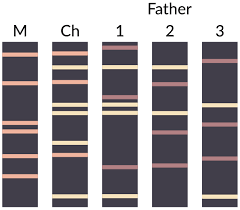
After we perform the paternity test, you will receive a percentage result. This percentage represents the probability that the child and alleged father are related. If the probability is 0% then they are not related. If they are related, the probability may be as high as 99.99%.
Traditional paternity tests are extremely accurate. But deceased paternity tests can be less accurate if we are not using the alleged father’s DNA. The more distant the relative, the less accurate the test will be. Therefore, it is best to obtain DNA samples from the deceased father if at all possible.
Contact us today to schedule a paternity test appointment with the best DNA testing lab in NYC.
AABB DNA TESTING: 718-701-0292
References
https://en.wikipedia.org/wiki/DNA_paternity_testing
https://www.verywellfamily.com/about-paternity-tests-1270746
https://dnacenter.com/blog/are-home-paternity-tests-accurate/
https://dnapaternitytestingcenters.com/paternity-testing-with-father-deceased/
For many men, doubts in relation to whether a child is theirs can create huge problems. It not only affects their personal lives and mental well being but can put enormous strain on the relationship between them and the child as well as with other family members and their partner. This is why paternity testing should be carried out as early as possible if there is any doubt about paternity and there are various options available for this.
If you do require a paternity test, you will generally need to provide a cheek swab as the DNA sample for yourself and the child. In addition, it is advisable to get a sample from the mother although this is not mandatory. However, it can cause delays and require further investigation if this is not provided.
There are a number of options available for those that require a paternity DNA test to find out whether they are the biological father of a child. The key options are:
You can get kits that enable you to carry out the test at home and these are available online or at some stores. This is an easy and affordable means of getting a test and it provides people with greater convenience. However, many prefer something that is more conclusive and accurate, and in legal proceeding these results would not be admissible by the courts.
Another option is to find a reputable DNA testing center and have the tests carried out at a laboratory. As long as the lab is an accredited one, this is fine for legal proceedings and means you can benefit from greater peace of mind and reassurance when it comes to the accuracy of the results. The fees are higher than with home testing but for some, this is the most suitable option.
If you are going through legal proceedings in relation to the child, your legal representative may be able to get the courts to order a DNA test if they feel that it is necessary. This is another option you may want to consider depending on your situation and the circumstances.
If you would like to know more about your options when it comes to paternity DNA testing, get in touch with the leading DNA testing center in NYC today.
Every year, there are many people that decide they want to have a paternity test carried out but they are not sure of the process they need to follow. There are various options available when it comes to paternity testing and the one that is right for you will depend on your individual circumstances and situation. In order to ensure you get accurate, timely results it is important that the right test is used.
When it comes to having a paternity DNA test, the first thing you need to do is find a suitable DNA testing center where the test can be performed. You will generally need to speak to one of the experts at the center so that they can take details about your situation and determine the most suitable test for your needs. All situations can vary so it is important to be totally honest and upfront with all details if you want to ensure you get accurate results.
When it comes to getting your paternity test sorted out, finding a reputable facility is of the utmost importance because this could make a difference in many ways. In order to ensure you find a facility that is established, respected, and reputable, you should do some research online and check out some reviews. This will enable you to see what others have to say about the facility and means you can get your test carried out with greater reassurance and peace of mind.
There are some other things you need to look at as well when it comes to finding a good facility for your paternity DNA testing. For instance, the cost of having this type of test done can vary from one place to the next so you need to check out the charges to ensure you are not being charged over the odds. However, you need to ensure you do not make compromises when it comes to quality and reputation in order to keep costs down.
Finally, make sure you find out more about how long it will take for the results to come back and how you will receive them. This will enable you to get more of an idea what to expect and when to expect the information you require.
Get in touch with the DNA specialists
To find out more about our expert paternity DNA testing service, get in touch with the leading DNA testing center in NYC today.
You love your child, but you just are not sure. Perhaps you received a notice from someone you knew long ago claiming that their child is actually yours. On the other hand, you may be a child and want to know (or confirm) that someone is truly your parent. DNA testing can help to answer this question and it can give you the information you need to have to make a decision of how to move forward. There are several options available to you and, in all cases, you can be confident in the results you receive.
Perhaps you just want confirmation. You may not need a legally binding DNA test. You want something you can do quickly and perhaps even without a lot of information getting around to your family. A DNA testing kit can help you with this. The process is very simple. You will obtain a kit, follow the instructions on it to submit the necessary DNA, and the lab will send you the results. Though you are conducting the testing yourself, it is still likely that, as long as you follow the instructions provided, you’ll get a very accurate result.
But, what if you want more? Perhaps there is a question about legal paternity and a matter of heirs or child support? Perhaps your grandfather wants a paternity test to confirm your newborn child to ensure he or she is truly his heir. When this is the case, you may wish to seek out a legally binding DNA test. For this type of test, the process is very much the same. However, you will need to visit the DNA testing center and allow a lab technician there to obtain the DNA samples. This still involves a swab test and there is no blood drawn. However, because it is being conducted by a professional, it is considered legally binding.
Within a matter of days, you could learn the answers to your questions and find out what your options are for moving forward. It’s essential that you work with a trusted DNA testing center to ensure that the results you obtain are accurate. Call our offices today at 718-701-0292 and schedule an appointment with us. We’re one of the best DNA testing centers in New York. Get the answers you need finally.
Paternity DNA testing is the single most accurate method currently available. Everyone, with the exception of identical twins, has a completely unique DNA profile, much like a fingerprint. We inherit half of our DNA from our father and half from our mother. DNA paternity testing finds the 50% match between the DNA profiles of the child and the parent. This method is considered to be 100% accurate. Paternity DNA testing results can be used in court to prove fatherhood, and can be used as evidence for parental rights, child support, social benefits, and other situations in which proof of parental relationship is necessary.
Once DNA specimens are obtained by the laboratory, results are generally available in as little as three to five days. Expedited testing services can provide results within 24 hours in certain situations. Paternity DNA tests can be conducted before the child is even born so that paternity can be determined during pregnancy. An obstetrician/gynecologist will be involved in the collection of the child’s DNA sample. This procedure is performed during a specific timeframe in the pregnancy in order to ensure there is minimal risk to the developing fetus or the mother. Results obtained from prenatal DNA testing are as accurate as those from a standard paternity DNA test conducted after the child is born.
An individual’s DNA does not ever change during their lifetime, and the type of DNA sample used in the paternity test will not affect the accuracy of the results in any way. Therefore buccal swab samples are just as accurate as blood samples. Buccal swabs collect cell tissue from the inside of a person’s cheek. This method is less invasive than drawing blood, and it’s faster and painless. Non-standard samples such as cigarette butts, hairs (including roots), and personal items like toothbrushes are also potential sources of DNA. These can be useful for collecting DNA from individuals who are not cooperative with the paternity testing process.
All steps in the Chain of Custody of DNA samples must be properly identified and documented in order to be legally admissible in court. In a legal paternity DNA test, collection and handling of the samples must be properly done and documented. And anyone involved with the testing process, from the person collecting the specimen to the laboratory analyst performing the paternity test must be an objective third party who has no interest in the test results.
Paternity DNA tests that are properly conducted will always show a 0% probability of paternity if the man who is tested is not the biological father. They will also show a greater than 99.9% probability of paternity if the man is the father. These results are considered decisive by the court and definitively prove or disprove paternity.
If you require paternity DNA testing please call the top DNA testing lab in New York City, AABB DNA Testing.
A DNA paternity test is the most widely known and most common of all relationship DNA testing.
Statistically, more than one million men in the United States have paternity tests every year. Of these million men, about one in three discovers that he is not, in fact, the biological father of the child in question.
Obviously, this could have devastating emotional effects and if the paternity testing was performed for financial reasons, the results can also have a tremendous impact.
Why is a DNA paternity test done?
Reasons for a Paternity DNA Test
There might be one of several reasons why someone would want or need to have a paternity test done. Here are a few of the most common reasons:
There are legal and non-legal DNA paternity tests.
Legal vs Non-Legal Paternity Tests
In cases where someone wants a paternity test just from a personal, private desire to know either whether or not they are the biological father of a child or a child who wants to know their parentage….a legal DNA paternity test isn’t necessary.
But, if there is money involved or in cases of immigration issues, it is advisable or even legally necessary to have a legal paternity test performed.
The major difference is that with a legal paternity test, there is a chain of custody that is observed through each step of the process. The parties must have verifiable identification and photographs are taken of each participant.
Still, even if you don’t need a legal paternity test, it is best to use a testing lab that uses the same techniques and standards for both legal and non-legal.